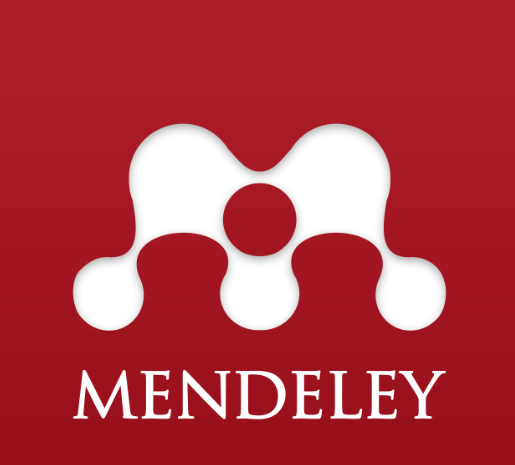EFFECT OF WORK DISCIPLINE, LEADERSHIP STYLE AND TRAINING ON EMPLOYEE PERFORMANCE IN RSUD HAJI MAKASSAR
DOI:
https://doi.org/10.22219/jmb.v10i2.13658Keywords:
Work Discipline, Leadership Style, Training and Employee Performance.Abstract
The purpose of this study was to analyze the effect of work discipline, leadership style, and training on device performance partially and simultaneously, and to analyze which variables had the most dominant influence on the performance of the employees of RSUD Haji Makassar. The sample of this study was 120 people, using saturated samples, with the method of multiple linear regression analysis with the help of the SPSS program. The result showed that employee performance is influenced by work discipline, leadership style and training. The variable that has the most dominant influence on the performance of employees at RSUD Haji Makassar is training. Therefore, it is recommended to allocate funds for training activities and develop an incentive policy for fostering responsibility and employee integrity.
Downloads
References
Aritonang. (2010). Employment Compensation, Work Discipline, Human Resources Management. Mount Agung.
As’ad, M. (2010). Industrial Psychology Human Resources Science Series (IV). Liberty.
Buhler, P. (2010). Alpha Teach Yourself, Management Skills. Prenada Media Group.
Dessler, G. (2011). Human Resources Management. Indices.
Dwiyanto, A. P. R. (2014). Public Service and Customer Satisfaction. PT. Alumni.
Hasibuan, M. S. P. (2002). Human Resources Management. Earth Scripts.
Kartini, K. (2011). Leader and Leadership. PT. Raja Grafindo Persada.
Kencanawati, A. A. A. M. (2013). The influence of leadership, work ethic, motivation, and discipline on the performance of employees of Denpasar Municipal Tax Service Office.
Kotler, P., & Armstrong, G. (2012). Prinsip-Prinsip Pemasaran (13th ed.). Erlangga.
Luthans, F. (2011). Organizational Behavior. Andi.
Mangkunegara, A. P. (2013). Human Resources Management Company. PT. Rosdakarya Teen.
Mathis, R. L., & Jackson, J. H. (2011). Human Resource Management (10th ed.). Salemba Empat.
Nimpuno, G. A. (2015). The influence of work discipline and leadership style on ud employee performance. Yogyakarta Student Library.
Nitisemito. (2013). Personnel Management (2nd ed.). Ghalia Indonesia.
Rorimpanday, L. (2013). Trasformasional, transactional, Situational, Service and Authentic Leadership Style towards the Performance of Village Employees in Bunaken District of Manado City. Journal of EMBA, 1(4), 2233–2244.
Sastrohadiwiryo. (2013). Human Resources Management. PT. Bumi Aksara.
Simamora, H. (2013). Human Resources Management (3rd ed.). Publishing Section of YKPN College of Economics.
Sinambela, L. P., & Al., E. (2012). Employee Performance Measurement Theory and Implications. Graha Ilmu.
Suyanto. (2013). Multimedia Tools to Increase Competitive Advantage. PT. Elex Media Komputindo.
Tampubolon. (2013). Human Resources Management (1st ed.). Partner Media Discourse.
Thaif, I. (2015). Effect of Training, Compensation and Work Discipline against Employee Job Performance (Studies in the Office of PT. PLN (Persero) Service Area and Network Malang). Review of European Studies, 7(11).
Wibowo, I., & Saputra, W. (2017). The influence of leadership style on employee performance through discipline and motivation of ppsu employees duren sawit village east jakarta. Krisnadwipaya Business Management Journal, 5(2).
Wijaya, B. ganda., & Soedarmadi. (2013). The Influence of Leadership Style, Motivation, Training and Work Discipline on Employee Performance of PT. .12 miles away.
Yukl, G. (2015). Leadership In Organization. Indices.
Downloads
Published
Issue
Section
License
Copyright (c) 2020 Manajemen Bisnis

This work is licensed under a Creative Commons Attribution 4.0 International License.
Authors who publish with this journal agree to the following terms:
- Authors retain copyright and grant the journal right of first publication with the work simultaneously licensed under a Creative Commons Attribution-ShareAlike 4.0 International License that allows others to share the work with an acknowledgment of the work's authorship and initial publication in this journal.
- Authors are able to enter into separate, additional contractual arrangements for the non-exclusive distribution of the journal's published version of the work (e.g., post it to an institutional repository or publish it in a book), with an acknowledgment of its initial publication in this journal.
- Authors are permitted and encouraged to post their work online (e.g., in institutional repositories or on their website) prior to and during the submission process, as it can lead to productive exchanges, as well as earlier and greater citation of published work (See The Effect of Open Access).

This work is licensed under a Creative Commons Attribution-ShareAlike 4.0 International License.




71.png)





